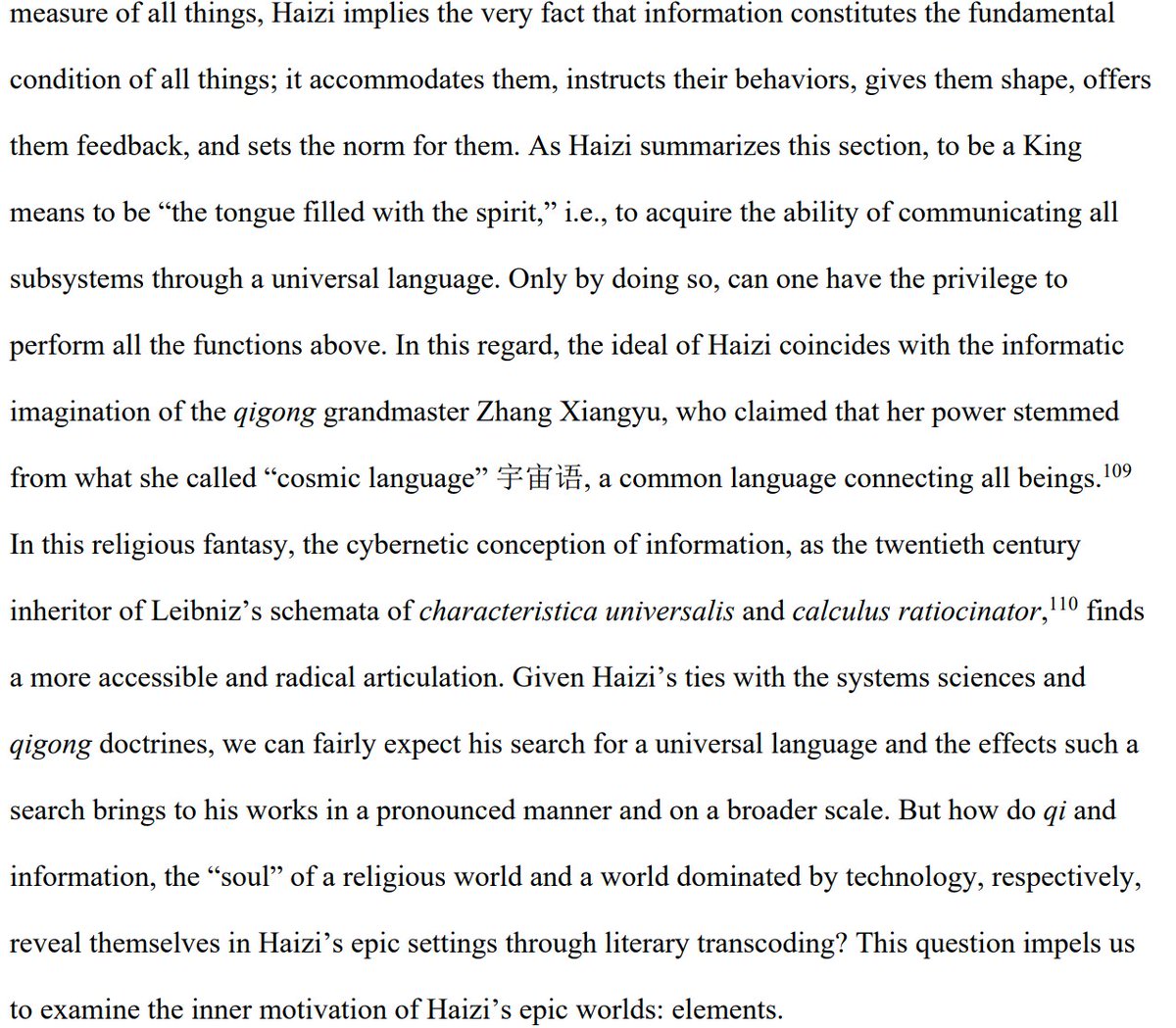We know Wang Huning's trip to America was important. But his experiences in Singapore are more formative. This is where he sees a neoauthoritarianism in action, with political, economic, and cultural freedoms permitted under stable authority and shared values. 

He marvels at the wealth of Singapore. It's clean and prosperous and lively. There's nothing like equality, but the lives of the underclass are, he assumes, fairly good. But how was it been able to surpass some cities in the West in wealth and other factors? 







The history of colonialism and the drive to modernize inclined Singapore toward Western civilization 西方文明 and Western culture 西方文化. Taking industrial civilization 工业文明 from the West, means taking less positive aspects, like its social ills 社会病. 







Wang Huning has read in newspapers about rapes and general hooliganism among young people. He warns of transvestites 人妖 in Singapore, part of the "phenomenon of homosexuality that has been introduced from the West" 西方传入的同性恋现象. 
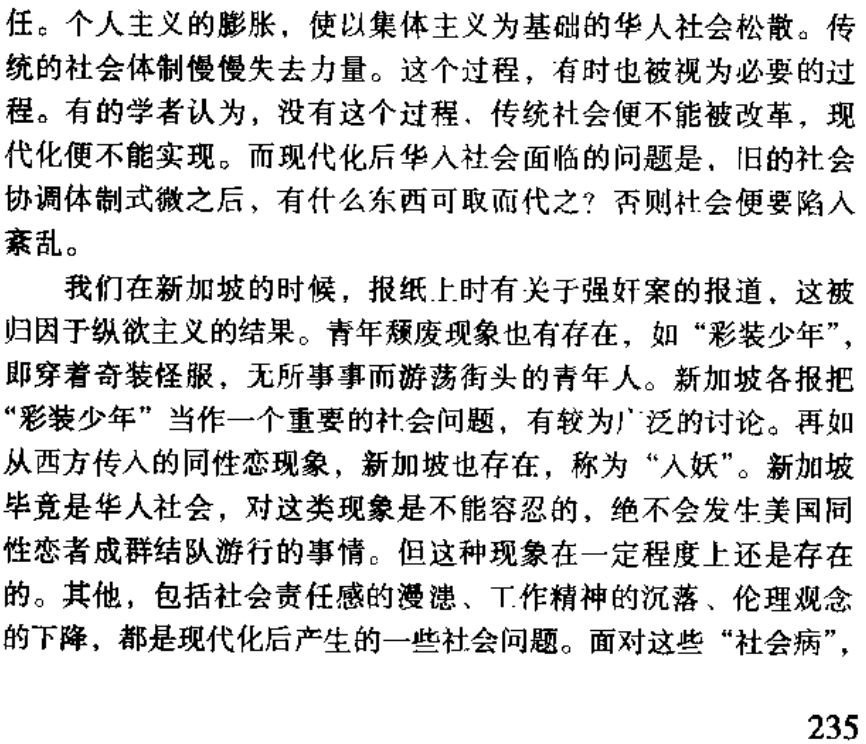
Wang Huning says that Singapore has tracked these social ills to a problem in spiritual civilization. Singapore will use the essence of Chinese culture 华夏文化的精华 to resist Western hedonism and individualism 西方纵欲主义和个人主义. It will restore Confucian ideals. 
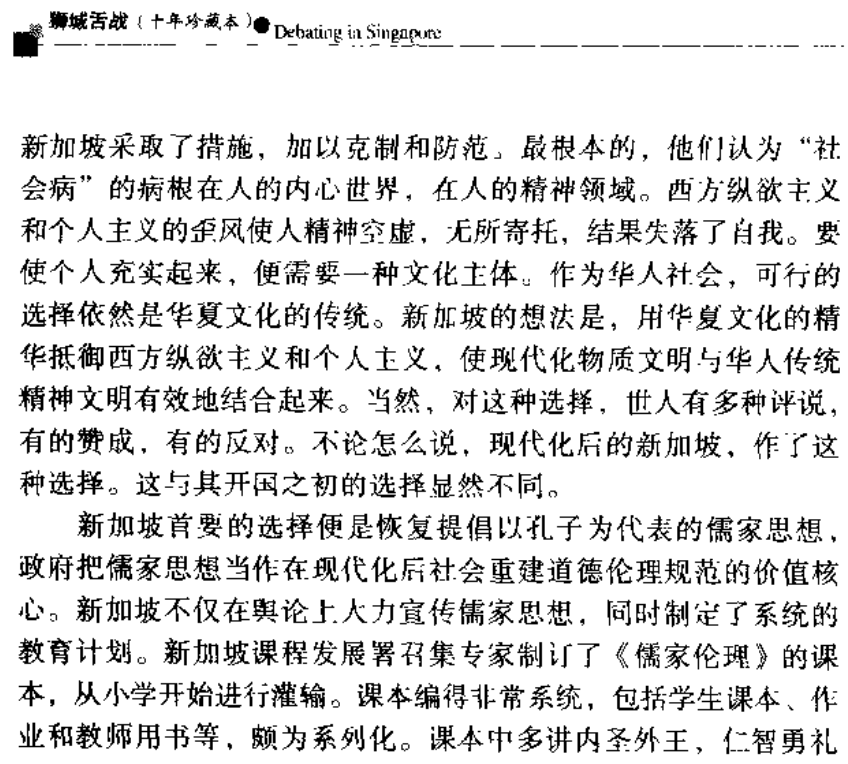
Western modernization can bring about material prosperity but it cannot feed the human soul. Confucian ethics provide spiritual sustenance and discipline on an individual and civilization level. Material prosperity remains, but it is tempered by indigenous values. 
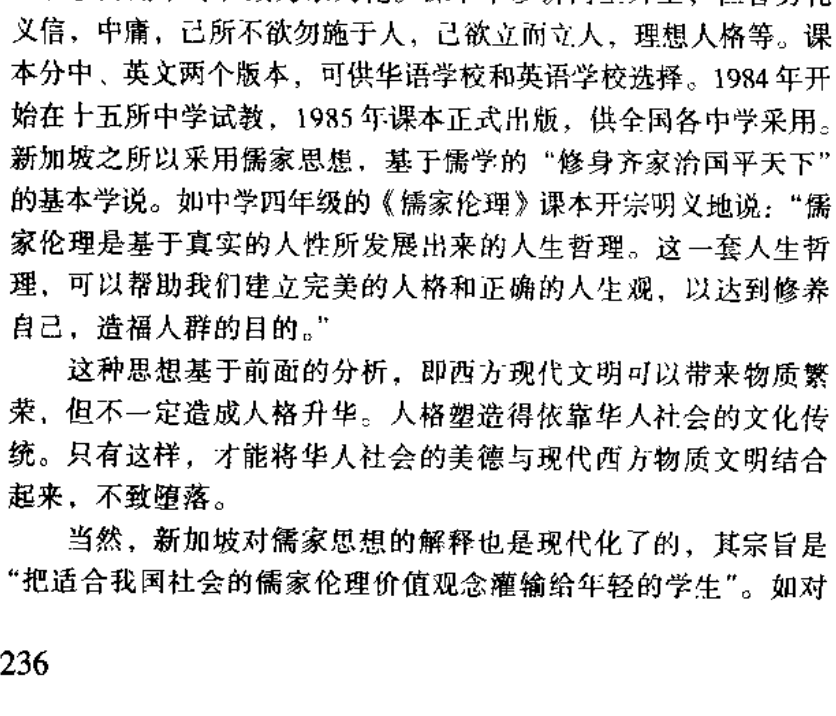
In the context of Chinese politics, this is a liberal argument. Spiritual civilization allows the state to recede because it does not need to rule by force. Power can spread to localities; wealth can spread to the entrepreneurial class. Wang Huning sees the future in Singapore. 
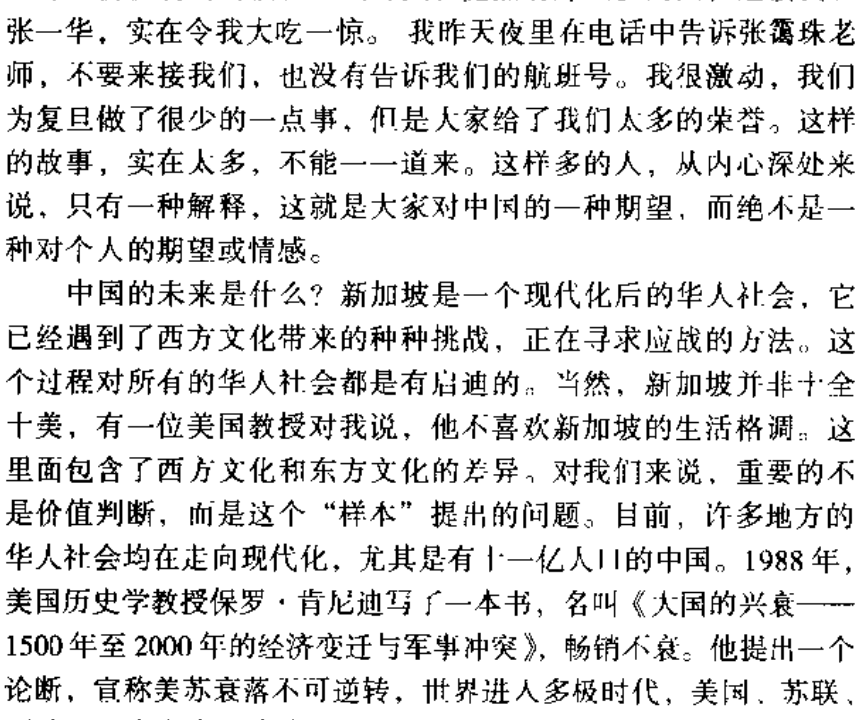
You can read it in full here, without having to deal with the scan: m.aisixiang.com/data/39868.html
And I wrote about Wang Huning here, too, if anyone wants the very basics: spectator.co.uk/article/the-ma…
• • •
Missing some Tweet in this thread? You can try to
force a refresh


















